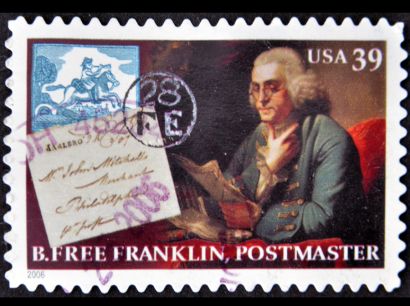This Week's Story
Retirement has exciting opportunities for Benjamin Franklin.

This Week’s Story relives American history and the Bible through brief inspiring stories presented on mp3 audio recordings and text for reading.
Yes! Possible solutions! part six!
“Barbara, you wrote that Ben Franklin retired at age forty-two. Retire does not sound like a word you would use often.”
“I wouldn’t. Certainly, Ben Franklin did not.
“I realize retiring can be a help for bad health and unfair jobs. It should not be an automatic expectation for a retiree to stop working at a job the person has had for thirty to forty years.
“Expectations can become stop signs for possibilities and solutions. They are not the total substance of the retired life. Shift gears. The retiree has a power key. Off allows for sleep, not a permanent self-inflicted breakdown.
Say farewell to shift work or early get-ups in the morning. Plan a trip; stay up late; pursue real and hypothetical trails that wander to unexpected destinations. Find or satisfy your curiosity. You can discover that God’s creation is infinite.
What can you improve in your home, town, and nation? Share your vision.
When Ben Franklin retired at forty-two, he had forty-two more years that he lived. He became the prime force and guiding genius on research about electricity. It was a curiosity.
He learned that electricity is more than magnetism. Electricity can go through some things like some metals, but not other things like wax or silk. He discovered that electricity can be negative or positive, yet it is not two kinds. Pointed objects draw electricity more easily than blunt objects.
As Ben experimented with electricity, his life went many directions. He communicated many of his activities with the Junto group and the American Philosophical Society. Both groups he had started.
In 1753 at age forty-seven Ben became deputy postmaster general of the northern and southern colonies postal systems. He also became chief financial officer for all thirteen colonies. He made the postal service financially sound. For the first time the colonies got regular mail deliveries.
There were no military organizations in Philadelphia or the surrounding province. War had begun in Europe and it spread to the New World. French and Spanish privateers sailed up the Delaware River and sacked two plantations near Philadelphia. This was the home of Ben Franklin. It was almost as big as Boston and was a busy port.
The Provincial Assembly was controlled by Quakers, who were opposed to war. Wealthy merchants in the city wanted military protection, but they did not want to spend money defending Quakers. Benjamin wrote and printed a pamphlet entitled Plain Truth, which described vividly what would happen if Philadelphia were attacked. He drew a picture of the city in flames and people running through the streets being attacked by brutal privateersmen.
Benjamin called several meetings to form a volunteer association for self-defense. Eventually over 10,000 enrolled in volunteer regiments. The war bypassed Philadelphia and by 1748 a peace treaty had been signed in Europe. Franklin’s organizing of the colonists was a step toward unity that would be needed in the 1770’s when the Revolutionary War began.
Join Barbara Steiner, Todd Warren, and myself, Carlos Gamez, soon for part seven.
Investigate thisweeksstory.com or follow us on X, formerly Twitter at thisweeksstory@story26502.
<< previous story] [next story >>
We invite your comments! [click here to comment]
This Week's Story is a non-profit supported by listeners. [click here to make a donation]
 click here to play audio
click here to play audio